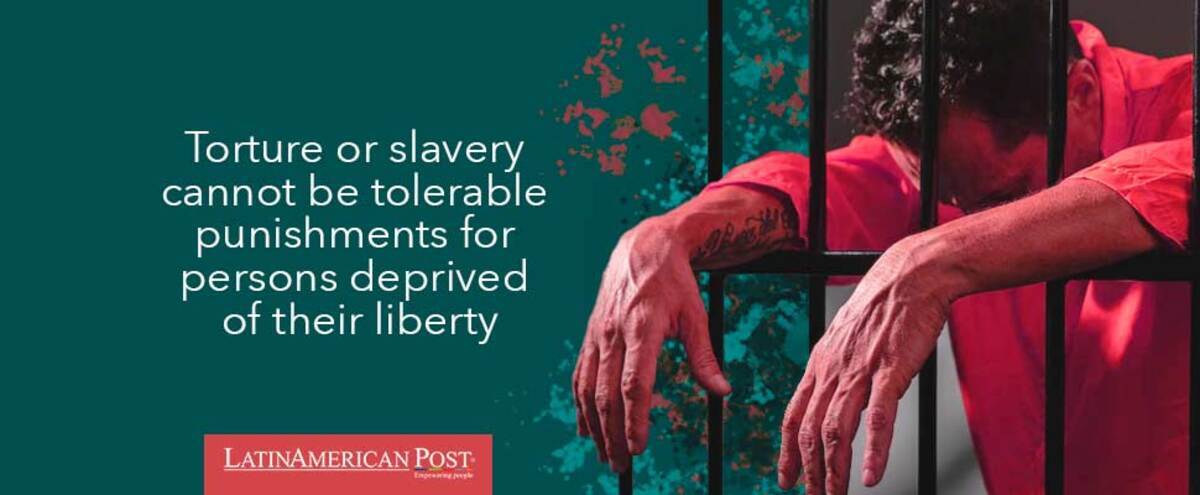Opinion: The Rights Of Those Deprived Of Liberty Are Also Inalienable
The populist punitive measures of several politicians do not solve anything and turn the State into a violator of Human Rights. The rights of those deprived of liberty are protected by the international community .

Photo: Freepik
LatinAmerican Post | Santiago Gómez Hernández
Escucha este artículo
Leer en español: Opinión: Los derechos de los privados de libertad no se pierden por ser criminales
Violence in Latin America is one of the main concerns of citizens. Whether in Mexico, Brazil, Colombia, El Salvador or Argentina, delinquency and organized crime represent a headache for millions of citizens who are vulnerable to criminals who do not value life.
However, this problem has been exploited by simpleton politicians with populist punitive measures that instead of achieving a more peaceful society, achieve the opposite. This, passing through the human rights belt, which as much as it hurts us, are the rights of all humans, regardless of their condition . And criminals, also enjoy these same and do not lose them immediately at the time of committing a crime.
Also read: Could The Migratory Policies Of Central America and Mexico Reduce The Number Of Illegal Migrants?
There are some who claim that by taking away food or threatening deplorable conditions, the violence decreases. But there is clear evidence that if the detention centers do not become rehabilitation centers, it will be useless to imprison thousands of criminals, if when they are released, they re-offend again.
For all those who see in this measure, the solution, the Inter-American Commission on Human Rights of the OAS, specifies that "Persons deprived of liberty shall have the right to receive food that responds, in quantity, quality and hygiene conditions, to adequate and sufficient nutrition, and take into consideration the cultural and religious issues of said people, as well as the needs or special diets determined by medical criteria. Said food will be provided at regular times, and its suspension or limitation, as a disciplinary measure, must be prohibited by law."
The non-provision of food, due to the actions of third parties, borders on torture. It cannot be defended by any person who sees in the State, a guarantor of rights.
Others also assure that forcing prisoners to work and that according to their work they receive their food and thus their expenses are paid, they do not know that this is called forced labor. Prisoners have the right to work, but not to be forced and unless their food or maintenance depends on this. At the end of the day, the State is the one that is responsible for protecting those citizens who, by their own decision or by chance, committed a crime and must answer to society.
In case you don't remember, the people who were forced to work in exchange for food and shelter were slaves.
But all these measures have two big problems: international sanctions and recidivism.
First, they are an explicit violation of the rights of persons deprived of their liberty. This can lead to international demands and sanctions on countries. And as long as we want to continue being democratic states far from authoritarianism, since the American countries, belonging to the Organization of American States (OAS), well agreed on " Principles and Best Practices on the Protection of Persons Deprived of Liberty in the Americas ", which specifies the good treatment of prisoners.
According to the OAS, all those deprived of liberty have the right to be treated "humanely, with unrestricted respect for their inherent dignity, their rights and fundamental guarantees, and with strict adherence to international instruments on human rights." And it is that rights are not earned, rights are defended. No person is born with less rights than others and they cannot be lost. They are inherent to human nature and must be guaranteed at all times and in any circumstance. When they are unknown, human rights are being violated and there should be criminal responsibility for whoever participates in the violation of these.
Punitive populism solves nothing. On the contrary, it takes advantage of the pain of the victims and the desperation of society, to promise radical and revengeful measures such as "torture, life imprisonment, death penalty", when in the end they do not solve the causes of crime.
The case of Norway, with a prison system that superimposes the rehabilitation and training of its prison population, is a pioneer in the world and with the best results. For example, the NGO DeJusticia explained that "According to official data, Norway has a recidivism rate of only 20%, particularly low compared to the 76.6% rate in the United States, one of the highest in the world".
So, the discourse of revenge against the imprisoned population must be rejected and seen as an authoritarian position, far from the democratic, human and civil principles on which society must be based.
Now, there is no shortage of people who say: "Well, if they kill a relative of yours, surely you will be against the rights of those criminals." And precisely, is that the rules and laws can not be drafted by particular interests and revenge. Being a victim of crime is relevant and everyone must be heard… but the laws must also have an interest in rehabilitation and not repetition.
The laws are made with a purpose and with a humanist inspiration, they guarantee rights and freedoms and in an objective way. Leaving penalties and laws to subjective and partisan justice ends up damaging its legitimacy. For this reason, it is necessary to promote the respect and legitimacy of the institutions, their independence and combat corruption at all levels of the judicial system. From the courts to inside the prisons.




